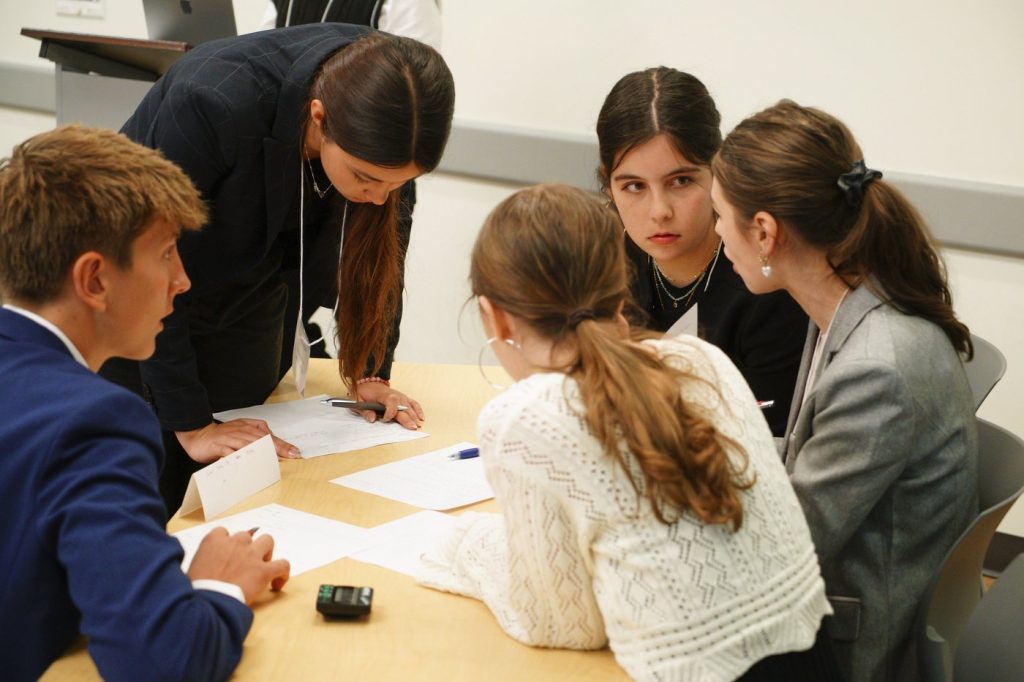CHAPEL HILL, N.C. (AP) – At the National Speech and Debate Tournament, two high school students engage in a classic competitive debate format, with one advocating for the right to secede from government and the other systematically countering the arguments. In contrast, a year later, another group of high school students gathers at the University of North Carolina for the National High School Ethics Bowl finals. Here, they explore profound questions about critical commentary following the death of a public figure, without being assigned predetermined positions. This creates an environment that prioritizes dialogue over conflict.
The traditional debate format emphasizes the subduing of opponents through rhetoric, while the Ethics Bowl shifts the focus towards inclusive discussion. As Robert Ladenson, the creator of the Ethics Bowl, notes, the essence of ethical understanding lies in genuinely comprehending opposing views. Participants aim to delve into the complexities of issues rather than simply developing rebuttals. In the Ethics Bowl setting, agreement is not only tolerated but is also seen as a valid outcome if participants engage deeply with the material.
One notable case discussed during the Ethics Bowl is “See Spot Clone,” which raises questions about the ethics of cloning beloved pets. The Nashville-based Harpeth Hall team argues against cloning, citing reasons such as the abundance of homeless pets, the inability of pets to consent, and potential health issues associated with cloning practices. Meanwhile, the opposing team from Miami, Archimedean Upper Conservatory, poses probing questions that deepen the discourse rather than attacking the initial stance. They inquire about the role of pet breeders and challenge the ethical implications of cloning for human happiness, showcasing the collaborative spirit of the Ethics Bowl.
Judges also play a critical role by posing additional questions that expand the conversation, such as the potential ethical implications of cloning successful service animals. This structure demands thoughtful exploration of each angle of the issue, prioritizing nuanced understanding over simple conclusions. The process of dialogue is valued highly, encouraging participants to grapple with difficult questions without resorting to the simplifications prevalent in many societal debates.
The Ethics Bowl activities unfold in a relaxed yet serious atmosphere, with students sitting at tables surrounded by fellow competitors. Without a rigid dress code, students feel comfortable expressing themselves in a casual yet respectful manner. While competing for a trophy and recognition, participants emphasize the value of constructive conversations over traditional rivalry. This inherent spirit of collaboration reinforces the idea that engagement and learning from diverse perspectives lead to a richer understanding of complex moral landscapes.
Over the years, the Ethics Bowl has attracted significant interest, with 550 teams participating in regional contests across the country. Surveys conducted among participants indicate that all believed they had improved their critical thinking skills, with many reporting shifts in their ethical or political beliefs. This highlights a thirst for a different form of competition, emphasizing the importance of listening and understanding rather than merely winning.
Students like Sona Zarkou from BASIS Flagstaff reflect on their growth through participation, contrasting their past debate experiences characterized by aggression with the more respectful discourse of the Ethics Bowl. Rhiannon Boyd, a judge at the event, notes how collaboration between students with opposing views can foster genuine friendships and mutual respect, reinforcing the idea that differences can enhance strength in dialogue.
Ultimately, the National High School Ethics Bowl fosters an environment where young people learn to navigate complex moral dilemmas with empathy and respect, engaging in meaningful discussions that extend beyond mere argumentation.











